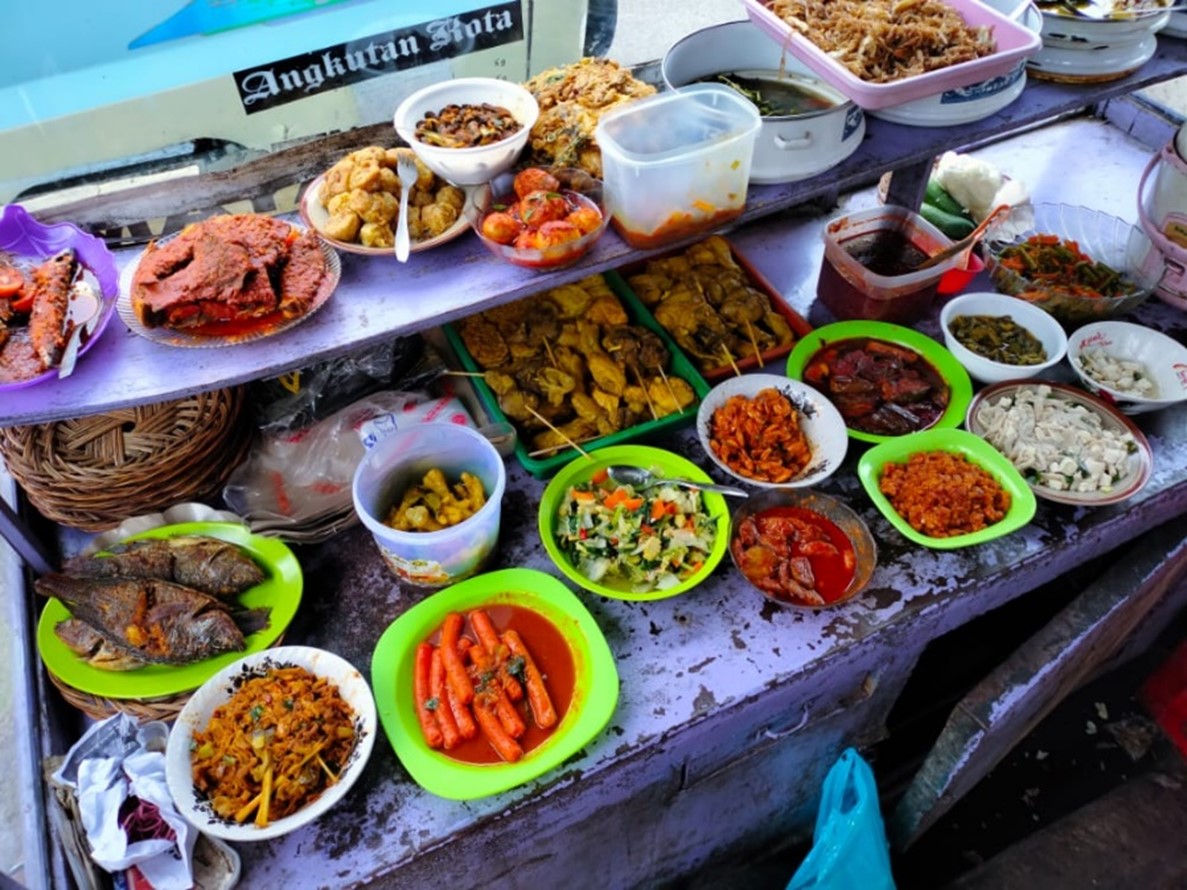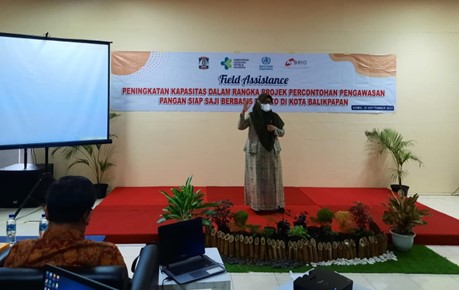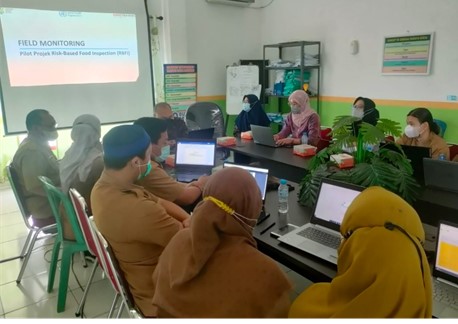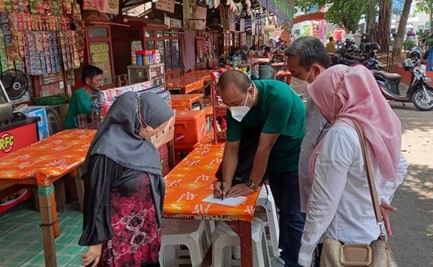Indonesia is confronted with the challenge of a limited number of sanitarians in the workforce, whilst the number of food establishments continues to grow. This growth has led to an increased demand from consumers for food safety assurance. Consequently, it drives the need for a higher quality and quantity of control and monitoring activities.
The Directorate of Environmental Health of the Ministry of Health (MoH) supervises the safety of ready-to-eat food through various mechanisms, including inspections and guidance by sanitarians at the Puskesmas level. These sanitarians are responsible for ensuring food hygiene and sanitation standards are met in restaurants, by street food vendors, and in canteens. They play a crucial role in food safety inspections and are responsible for conducting inspections of food establishments, assessing compliance with food safety regulations, identifying potential hazards, and recommending corrective actions. Sanitarians also provide guidance and education to food operators on proper food handling practices, sanitation standards, and risk mitigation strategies.

A small-scale food vendor sells ready-to-eat food in a stall known as a “Warung”. Credit: Cirebon District Health Office/M. Anes
Despite the crucial role played by sanitarians, data from Bappenas in 2023 showed that only 65% of registered food establishments have ever been inspected for environmental health regulations or received guidance. This is primarily attributed to the scarcity of sanitarians in comparison to the vast number of food vendors. In response to that, WHO introduced the concept of RBFI to Indonesia in 2020. RBFI is an approach that prioritizes inspections and regulatory actions based on the level of risk posed by food establishments, focusing resources on higher-risk areas to ensure food safety. Implementing RBFI allows systematic selection that filtered with high risk and significant public health concerns. This ultimately yielded to efficient resource allocation and management, which include inspection budget and human resources.
By embracing this strategy, MoH is expected to enhance the safety of ready-to-eat foods, thereby providing greater assurance to consumers regarding food safety.

MoH staff explains the importance of risk-based food inspections. Credit: Balikpapan District Health Office
In 2021, Indonesia adopted RBFI. Over the course of 2022-2023, our efforts have focused on piloting national guidelines in five districts/municipalities. The pilot programme encompassed 159 Puskesmas across these areas, assessing 3,681 food vendors for risks, as illustrated in figure 1. The collaborative efforts between WHO and MoH included conducting training sessions, workshops and providing field assistance in developing inspection profiles. To enhance efficiency, a risk calculator was created, which combines food and business risks, as illustrated in figure 2. The outcome of this pilot project has empowered sanitarians to determine the frequency of inspections for food establishments. Those classified as high-risk will undergo bi-annual inspection, while moderate-risk food establishments will be inspected annually, and low-risk food establishments will be inspected once every two years.

Figure 1. Number of food vendors assessed from 5 pilot sites.

Figure 2. The risk calculator to aid sanitarians
As the result, all the intervention areas have RBFI profiles, which helps them prioritizing their activities. Additionally, the pilot has led to significant improvements in food safety inspection techniques and has increased food safety knowledge among all 159 sanitarians, from 60% to 76%.
Overall, WHO Indonesia's RBFI initiative has made significant progress in enhancing food safety measures. Through the pilot programme, it successfully identified risks and developed inspection profiles. The introduction of a risk calculator facilitated automated scoring, streamlining the inspection process. With the establishment of RBFI profiles in all five districts/municipalities, future inspections can be prioritized effectively. Moreover, the initiative has proven to be a valuable capacity-building opportunity, enhancing the understanding of food safety and inspection techniques among sanitarians.

MoH, WHO and local staff conducting monitoring in Central Bangka District. Credit: WHO/Indah Deviyanti
"By implementing risk-based food inspections, we can strategically allocate budget for food safety activities that are not only appropriate but also effective and efficient. This approach simplifies the work of sanitarians, enabling them to conduct environmental health inspections with greater ease and precision," said Drg. Muhammad Anas Ma'ruf, Head of the Central Bangka Munipal Health Office, during the national workshop on pilot findings dissemination.
RBFI is crucial for the general public as it ensures the safety and quality of the food they consume. This approach enables authorities to identify and prioritize high-risk food vendors and establishments for inspections and interventions. Moreover, RBFI allow for efficient resources allocation, optimizing the effectiveness of food safety activities and improving overall public health outcomes. Ultimately, this approach promotes confidence in the food system, empowering consumers to make informed choices and fostering a safer and healthier environment for all.

WHO providing assistance to food inspectors from Puskesmas and Cirebon Municipal Health Office to calculate the risks of the food establishments. Credit: Cirebon District Health Office
As part of our ongoing support, WHO will assist in developing localized approach that covers various sources of food, including ready-to-eat and fresh food from different sources such as fish, animals, and plants, as well as processed food. This inclusive approach aims to establish synergy and alignment in the priorities of national inspection plans across different sectors. By considering a wide range of food items, the goal is to ensure comprehensive and effective inspection measures that promote food safety and protect public health.
Written by Indah Deviyanti, National Professional Officer (Environmental Health and Climate Change), WHO Indonesia
